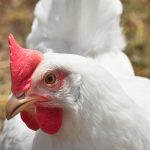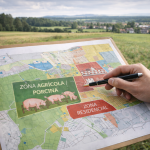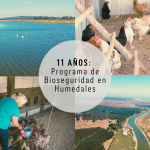ChileCarne organized a virtual meeting that brought together pork industry representatives to discuss current regulations and plan strategies to promote a more sustainable operation in line with new legal requirements.
On December 5, ChileCarne held the workshop Odor Management in Pig Farms: New law on environmental crimes and its relation to odor regulations. The online meeting brought together representatives from small and medium-sized companies, as well as environmental officers from larger ones. The goal was to address the challenges posed by the new odor regulation and the Law on Economic and Environmental Crimes, two landmark regulations that have set new legal requirements for the agricultural and livestock sector.
The workshop covered key topics such as progress made during the first year of implementation of the odor regulation, necessary adjustments to current projects, and the importance of proactive management to help the sector adapt to the new legal requirements.
Ignacio Urrutia, a partner at Urenda Rencoret Orrego y Dörr law firm, was the keynote speaker. Urrutia explained the link between the odor regulation and the new Law on Economic and Environmental Crimes, which introduces stricter sanctions, including fines proportional to company revenues, disqualifications, profit confiscation, and even prison sentences. The lawyer also underscored the need to implement effective crime prevention models to mitigate risks and ensure compliance.
A highlight of the workshop was the analysis of the letters of project pertinence companies must submit to modify ongoing projects by incorporating technological improvements to ensure compliance with odor regulations.
Renzo Boccanegra, ChileCarne’s Sustainability Department Project Manager and workshop leader, highlighted the need of adopting a proactive approach: “Events like these not only help us understand the scope of the regulation, but also allow us to work together to adapt our processes, anticipate legal requirements, and strengthen our commitment to sustainability.”
The workshop also covered the impacts of the aggravating factors included in the new Law on Economic and Environmental Crimes, particularly related to hierarchy within a company. This sparked a debate on the need to properly train team members and provide accurate information to the regulatory authority to avoid any potential criminal liability and ensure compliance.
Attendees also discussed the possibility of a year-end event to delve deeper into these issues and continue strengthening sustainability in the pork industry. These types of initiatives are critical to ensure that the sector not only complies with current regulations, but also anticipates regulatory changes and the expectations of international markets.
They also reaffirm ChileCarne’s commitment to lead the way in sustainability and regulatory compliance, providing practical tools for member companies to tackle the challenges of an increasingly demanding regulatory environment.
“Our goal is to continue facilitating opportunities for collaboration between key stakeholders to drive sustainable development and transparent operations that are in line with regulations and social expectations,” Boccanegra concluded.






